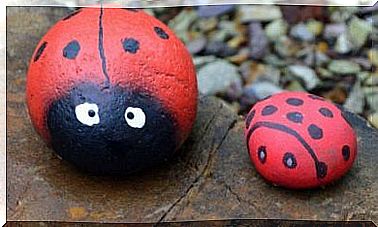The Sixth Month Of Your Baby’s Life And Supplementation

Your baby’s sixth month of life is a milestone that marks the beginning of many new experiences. Now your little one is ready to eat solid foods.
The teeth can already come through and after a few attempts they can stand.
This will be an unforgettable time! Let us be your guide in the changes taking place around that six month milestone.
Changes in your baby’s sixth month of life
Changes can be worrisome for first-time mothers. But usually, with some good advice, you soon realize that there is nothing to be afraid of.
During your baby’s sixth month of life, you will begin to notice some of the following changes.
Weight and height
A healthy weight for babies of this age has a wide range. Don’t worry if your baby is below or above average weight.
Six months after birth, most babies weigh between 6 and 8 kg. Their length varies from 63 to 70 cm.
Movements
One of the most exciting developments in this new phase is your baby’s agility and agility. He will pick up toys, move them from one hand to the other or even throw them.
You may also notice that your child tries to stand up alone and clings to furniture for support.

Nutrition
At this stage, most parents look forward to supplementing their child’s diet with other foods. It’s great to see his facial expressions when he tastes new flavors.
But before you give your child supplementary food, it is useful to first consult your (paediatrician) doctor to see if this is the right time to start.
Once you get the green light, you’re ready to start exploring. Your baby is beginning to appreciate tastes, textures, and other sensations that stimulate his senses.
What is the best way to offer new foods? Start with pureed fruits and vegetables, the so-called fruit snacks. Both are an ideal supplement to breast milk.
Watch your baby’s reaction over the next two days as you try different foods. Watch closely to make sure he doesn’t show any unusual symptoms. That could be a sign of a hypersensitivity or allergy.
The first teeth
Your baby starts to have his first teeth around this time. For some babies this can be a little annoying. The first teeth to emerge are usually the lower teeth, in the middle of the lower jaw.
You need to be patient with your baby at this stage. Teething can hurt and be very annoying.
You will immediately notice when your baby is teething. He is drooling a little more than usual and will put anything in his mouth to “scratch” his gums.
He may also be a bit irritable for a while and even have some elevation.
What should you feed your baby from the sixth month of life?
Without a doubt, it’s worth reading up on healthy foods to find out which foods are best for your baby. Keep in mind that this is an adjustment phase.
Give your baby some solid food as part of a complementary diet, but don’t stop breastfeeding or bottle feeding.
- Start with fruits, such as mashed banana, applesauce, or mashed peach or pear.
- Then add some vegetables to the diet, such as mashed carrot.
- If your baby eats that, legumes like lentil puree are very good.
- Give him some grains, such as rice, barley or oatmeal.
- You can also give him a little unsweetened yogurt.
- Add a few drops of oil if you are cooking for your baby. Oil contains healthy fats that are good for the development of the nervous system.
- If you want to experiment with a different food, talk to your doctor about it before giving it to your baby.

Other tips for your baby’s sixth month of life
To make your baby’s sixth month a great experience, here are some other recommendations to keep in mind:
- Your child sometimes makes sudden, surprising movements. Don’t be afraid of this. Make sure that it is safe and not near a potentially dangerous object. And for the rest… let him experiment and explore the world.
- You now also see that your baby is looking for a position to crawl. Try not to yell or talk too loud, even if it’s out of enthusiasm, with pleasure. This may startle your baby and may not want to try what he was doing again.
- Do not add salt or sugar to their food until they are one year old. Too much sugar can cause obesity, cavities and many other health problems. In addition, babies are used to the neutral taste of milk and do not need salt in their food.
- Don’t use honey in his food until an expert tells you it’s safe to do so. Honey may contain botulinum toxin, which can cause nervous system problems.
Some more tips for the sixth month of life
- It is important to watch your baby’s stools. Introducing new things to his diet can sometimes lead to constipation.
- Make sure you use suitable cutlery and crockery to feed your child. In this way you reduce the risk of injury and prevent plates and cups from breaking.
- Do not force your child to eat. Be patient! Your baby will get dirty, play with his food, and may spit some of it out. He can’t eat quickly and neatly right away, so give him time!
And above all… enjoy this time with your baby. Before you know it, they’ll get even bigger and more independent!








